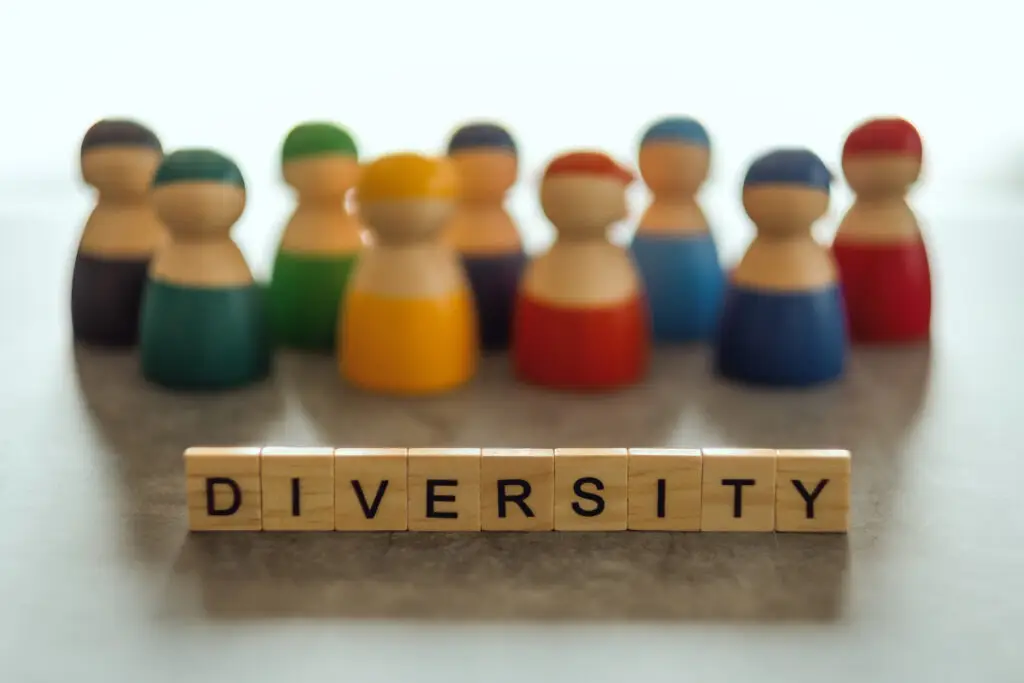Promoting Inclusivity in the Workplace

Cultural diversity is an essential component of modern society, and its celebration and integration into all aspects of life are more important now than ever. One day that stands out as a celebration and acknowledgment of cultural diversity is the World Day for Cultural Diversity for Dialogue and Development, observed on May 21st every year. This day serves as a reminder of the significance of understanding, embracing, and promoting cultural diversity, especially in workplaces, where global interactions are increasingly prevalent. In this blog, we will explore what the World Day for Cultural Diversity is, why it is vital for organisations, and how companies, including Qualia, are helping to foster inclusivity and diversity in the workplace through management training and leadership development.
What is World Day for Cultural Diversity?
World Day for Cultural Diversity for Dialogue and Development is an annual observance that was proclaimed by the United Nations in 2001. This day is an opportunity to recognise the benefits of cultural diversity and promote the importance of intercultural dialogue. It aims to highlight the richness of cultural diversity and how embracing diverse cultural perspectives can lead to more harmonious, innovative, and productive societies.
Cultural diversity involves the coexistence of various cultural groups, each with their own traditions, customs, values, and languages. The day encourages not just awareness, but also the importance of dialogue and mutual understanding between different cultures. It emphasises the potential for cultural diversity to contribute to economic growth, social development, and peace-building in both local and global contexts.
Why Cultural Diversity is Important, Especially in the Workplace
Cultural diversity is crucial in every aspect of society, but it holds particular significance in the workplace. In today’s globalised world, workplaces are becoming more diverse in terms of cultural backgrounds, languages, and perspectives. For businesses, embracing and promoting cultural diversity is more than just an ethical responsibility; it is also a strategic advantage.
1. Improves Creativity and Innovation
When employees come from different cultural backgrounds, they bring unique perspectives and experiences to the table. This diversity of thought and ideas can lead to innovative solutions and creative problem-solving. When cultural diversity is embraced in the workplace, teams are more likely to approach challenges from various angles, which leads to more dynamic and inventive results.
2. Enhances Employee Satisfaction and Retention
Employees who feel valued for their unique cultural identity are more likely to be satisfied with their jobs and committed to their work. Cultivating an inclusive workplace that celebrates cultural diversity can lead to higher employee morale, increased engagement, and lower turnover. This, in turn, reduces the costs associated with recruitment and training new employees.
3. Increases Market Competitiveness
A culturally diverse workforce is better equipped to understand and cater to a global customer base. Businesses that embrace cultural diversity are better positioned to connect with customers from different regions, ethnicities, and cultural backgrounds. They are also more likely to understand and respond to the needs and preferences of a diverse clientele, leading to increased market share and profitability.
4. Promotes Respect and Empathy
In workplaces where cultural diversity is actively embraced, employees learn to understand and appreciate different viewpoints and cultural practices. This leads to greater empathy and respect among team members, fostering a more collaborative and supportive work environment. A culture of mutual respect is essential for creating a harmonious and productive workplace.
5. Compliance with Legal and Social Expectations
In many countries, legislation mandates equal opportunity and non-discrimination based on cultural or ethnic backgrounds. By promoting cultural diversity and inclusion, businesses not only comply with legal standards but also position themselves as socially responsible entities that care about the welfare of their employees and the broader community.
How to Foster Cultural Diversity and Inclusivity in the Workplace
While the benefits of cultural diversity are clear, implementing diversity and inclusion strategies in the workplace requires thoughtful action and commitment. It’s not enough to simply hire employees from diverse backgrounds; organisations must take steps to create an inclusive environment where all employees feel valued, respected, and empowered to contribute their unique perspectives. Here are some steps that organisations can take to promote cultural diversity and inclusion in the workplace:
1. Create a Diversity and Inclusion Policy
Having a clear and comprehensive diversity and inclusion policy is an essential first step in promoting cultural diversity. This policy should outline the company’s commitment to cultural diversity, define what diversity means in the context of the workplace, and establish specific goals and strategies for achieving a more inclusive environment. It should also outline the company’s zero-tolerance policy for discrimination or harassment.
2. Offer Diversity Training Programs
Training employees and management on cultural sensitivity and diversity awareness is critical. Programs that focus on diversity education help employees understand the importance of embracing differences and equip them with the tools to interact respectfully with people from various cultural backgrounds. It is also important to focus on unconscious bias training, as this helps individuals recognise and address any biases they may have that could influence their decisions and behaviour in the workplace.
3. Encourage Open Dialogue
One of the best ways to promote cultural diversity is by fostering an environment where employees feel comfortable discussing their cultural differences. Encouraging open dialogue about diversity can help break down stereotypes, build mutual understanding, and enhance collaboration. This could be through team meetings, cultural awareness workshops, or even informal events where employees can share aspects of their cultures with one another.
4. Provide Support for Employee Resource Groups
Employee resource groups (ERGs) or affinity groups are a great way to provide a space for employees to connect with others who share similar cultural backgrounds or interests. These groups can serve as a support system, provide professional development opportunities, and help promote cultural understanding across the organisation.
5. Recruitment and Hiring Practices
Organisations should ensure their recruitment and hiring practices are inclusive and non-discriminatory. This includes using diverse hiring panels, promoting job openings in diverse communities, and actively seeking to hire candidates from underrepresented cultural backgrounds. It’s also important to review job descriptions to ensure they are welcoming and inclusive of all candidates.
6. Implement Flexibility and Cultural Competence in Management
Managers and leaders play a pivotal role in shaping the culture of the organisation. They must be trained to understand and support cultural diversity in the workplace. Providing managers with the tools and knowledge to navigate cultural differences and address any challenges that may arise can help prevent misunderstandings and foster an inclusive work environment.
Qualia’s Approach to Promoting Cultural Diversity in the Workplace
At Qualia, we recognise the importance of cultural diversity and inclusivity not only for the well-being of our employees but also for the success of our clients and partners. We provide management training programs that help organisations embrace and harness the power of cultural diversity, ultimately fostering inclusive environments that support diverse teams.
Critical Leadership Skills Development
Our training programs are designed to equip managers with the leadership skills needed to effectively manage diverse teams. Participants learn how to communicate effectively with individuals from different cultural backgrounds, build trust and rapport, and navigate complex team dynamics. These critical leadership skills are essential for creating an environment where all employees feel valued and supported.
Creating Inclusive Environments
Creating an inclusive workplace requires intentional effort, and our training programs help leaders understand how to cultivate such an environment. We focus on the importance of making all employees feel respected, understood, and empowered. By teaching leaders how to integrate inclusivity into everyday interactions and decisions, we enable them to build teams that thrive on diversity and collaboration.
Supporting Neurodiverse Individuals
In addition to promoting cultural diversity, our programs also emphasise the importance of supporting neurodiverse individuals. Neurodiversity refers to the natural variations in the human brain and nervous system, including conditions such as autism, ADHD, and dyslexia. Our training equips leaders with the tools to support neurodiverse employees, helping them create an environment that accommodates all individuals, regardless of their cognitive differences.
Aligning Business Strategies with Diversity and Inclusion Values
At Qualia, we believe that diversity and inclusion should be core values that align with overall business strategies. We help organisations understand how embracing cultural diversity can drive business success by improving team dynamics, innovation, and employee satisfaction. Our training also helps businesses understand the link between diversity and retention, showing how inclusive workplaces lead to greater employee loyalty and reduced turnover.
Reducing Costs and Outsourcing Diversity Expertise
Our management training programs also help organisations reduce the costs associated with poor retention and the need for external diversity consultants. By empowering internal leaders with the knowledge and skills to promote inclusivity, businesses can build sustainable, diverse cultures that don’t rely on outsourcing diversity expertise. The result is a more cost-effective and self-sufficient approach to managing cultural diversity.
Conclusion
World Day for Cultural Diversity is an opportunity for individuals and organisations alike to reflect on the importance of cultural diversity and the role it plays in creating more inclusive and harmonious societies. In the workplace, cultural diversity is not only a moral imperative, but also a strategic advantage that can lead to greater innovation, improved employee satisfaction, and enhanced business success. By implementing inclusive policies, offering diversity training, and fostering open dialogue, organisations can ensure they are truly embracing cultural diversity in all its forms.
At Qualia, we are committed to supporting organisations in their journey toward greater inclusivity. Through our management training programs, we help leaders develop the skills needed to create inclusive workplaces, support neurodiverse employees, and align business strategies with the values of diversity and inclusion. Together, we can build workplaces where everyone’s unique cultural identity is respected, valued, and celebrated.









